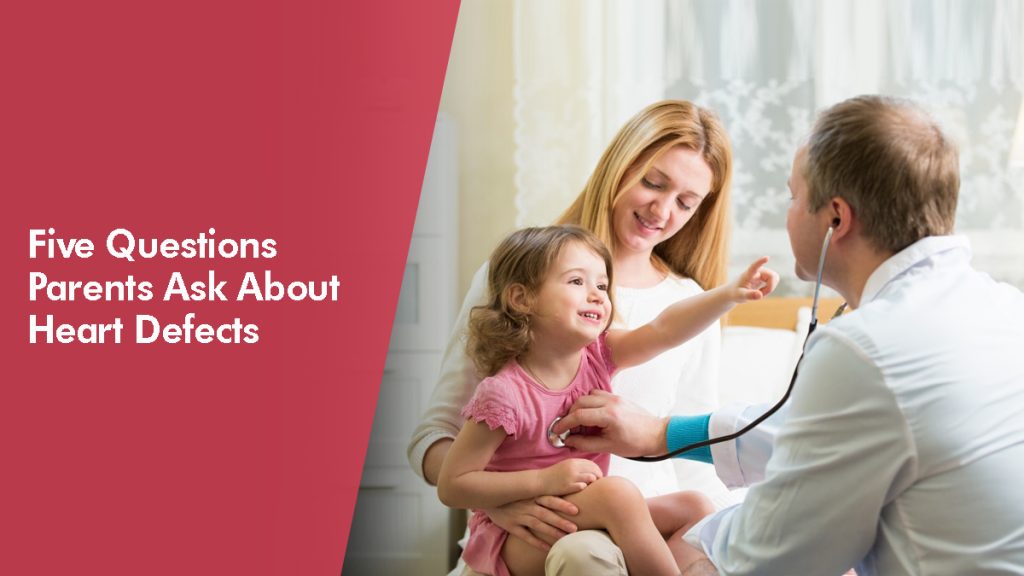Parents often have many questions after receiving a diagnosis of their child’s congenital heart defect (CHD). It can be a confusing and stressful time, and it is, therefore, natural to discuss these concerns with your cardiology doctors in Dubai.
Not all cases of CHD are the same. There may be different types of defects, complications, and symptoms. Accordingly, there may be several treatment paths. Therefore, the conversation of how to approach congenital heart defects will vary from patient to patient. However, there are a few questions that all parents will have.
If congenital heart defects are unchartered territories for you as a parent, then here are some of the most common questions that you may have.
1. What is Congenital Heart Disease?
Congenital heart disease is a heart abnormality that an individual is born with. It occurs when there are one or more issues with the heart’s structure or function, which appears as the heart first starts developing.
The three main categories of congenital heart disease effect:
- The heart walls
- The heart valves
- The blood vessels
CHD is usually detected at birth, and the patient may or may not have obvious symptoms. For some patients, symptoms develop over time, so it is important to understand what causes the defect and how to manage it throughout adulthood.
2. What Causes Congenital Heart Defects?
The exact cause of congenital heart defects is unknown. However, the major consensus of cardiology doctors in Dubai is that this cardiovascular disease is caused by genes as well as some environmental factors.
If one parent suffers from CHD, then their child has a higher risk of developing the disease as well. There are other possible causes or risk factors that expecting parents should be aware of:
- Genetic syndromes such as Down Syndrome
- Viral infections such as measles during the first trimester of pregnancy
- Maternal autoimmune disorders
- Exposure to teratogens
- Taking certain medications, drugs, alcohol, or smoking during pregnancy
- Developing Type 1 or Type 2 Diabetes during pregnancy
- Vito fertilization
The best cardiology doctors will be able to examine the environmental factors and family history to determine whether there is any risk of the development of CHD.
3. What are the Symptoms of Congenital Heart Disease?
Symptoms of CHD will vary between different cases and conditions. Some children may not experience symptoms at all until later in adulthood.
However, some common symptoms of at-birth cardiovascular disease to look out for include the following:
- Cyanosis (bluish lips, skin, fingers, and toes caused by a lack of oxygenated blood)
- Breathlessness or trouble breathing
- Difficulties in feeding
- Low birth weight
- Chest pain
- Delayed growth
- Lung infections
If your child has been diagnosed with CHD, or if there is reason to believe they are at high-risk for congenital heart disease, then keep an eye out for such symptoms. If you believe that your child is suffering from heart failure, or presenting any heart problems symptoms, then be sure to seek out medical treatment immediately.
4. Can Congenital Heart Disease Go Away?
In most cases, babies that are born with congenital heart disease must manage the condition throughout their life. However, plenty of patients are able to live normal, independent lives without any visible symptoms or required treatment. It depends on the severity of the condition, and its response to various treatment.
5. What are Treatment Options?
The treatment for CHD will depend on the severity of the condition. Some babies are born with congenital heart defects that do not require treatment at all. In some cases, only watchful waiting or monitoring symptoms is deemed as the best treatment path.
In more severe cases, congenital heart defects can be more complex and may require several surgeries that are performed over a period of weeks or years. Some patients may require medication and multiple surgeries throughout their lifetime.
The best heart surgeon in Dubai will assess the condition and determine whether surgery is necessary. They will also discuss all possible treatment options and explain the possible risks and benefits.
These are the most basic questions that parents will have about CHD. If congenital heart defects are detected in your child, rest assured that the best surgeon and pediatric cardiology doctors in Dubai will walk you through every possible care and treatment plan. Moreover, there are plenty of counselors, support groups, and doctors that will answer all questions about this condition.
Where to Find the Best Heart Surgeon in Dubai
German Heart Centre is the leading heart hospital in Dubai. Our team of specialist cardiology doctors in Dubai provides the highest standard of care for heart failure, cardiovascular disease, heart infections, congenital heart defects, and cardiovascular surgery. Book an appointment with our cardiology doctors or the best heart surgeon in Dubai today.

